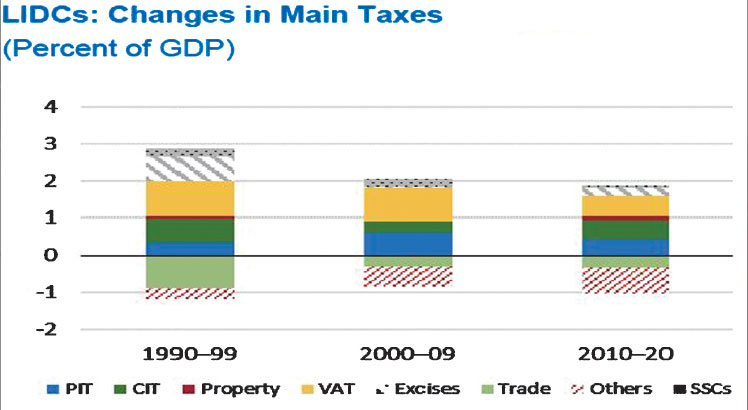Malawi tax revenues below par—IMF
Malawi’s tax revenues, alongside those of counterparts in the low income developing countries (LIDCs), is below par, averaging 13.2 percent of gross domestic product (GDP), according to an International Monetary Fund’s (IMF) report.
This below performance, the IMF said is holding constant economic structure and the quality of institutions.
According to the IMF Building Tax Capacity in Developing Countries September 2023 Policy Note, LIDCs’ estimated tax potential amounts to 19.9 percent of GDP.
Reads the policy note in part: “If governmental effectiveness improves to that of emerging market economies, that potential increases by another 2.3 percentage points of GDP.
“When reforms are supported by adequate political buy-in and are appropriately coordinated across complementary policies and institutions, they can bring about quick and meaningful revenue, more tax progressivity, and better incentives.”

IMF observes that while achieving the Sustainable Development Goals, addressing climate change and stabilising debt LIDCs require a significant and sustainable boost in tax revenue.
IMF data shows that consumption-based taxes are the main source of revenue for LIDCs, but income-based taxes are on the rise
Consumption taxes represented approximately 62 percent of all taxes, down from over 70 percent in the 1990s when they tallied eight percent of GDP.
World Bank data shows that as a percentage of GDP, tax revenue has averaged 12.1 percent from 2019/20 to 2022/23 financial years, with tax revenues showing a declining trend from 12.4 percent to 11.7 percent.
In an interview yesterday, tax expert Emmanuel Kaluluma observed that looking at the trends, tax gap could remain or get worse.
He said: “The economy during the period has slowed down, people lost jobs resulting in less Paye payers and less profits resulting in reduced taxes.
“Despite the difficult times, corrupt and fraud tendencies are still being committed. This means the tax gap remains or gets worse.”
On his part, Malawi University of Business and Applied Sciences economics professor Betchani Tchereni said while subdued economic growth is limiting the economy’s tax revenue potential, only few people are taxed.
“We want to meet our tax potential but that implies that we should be growing the economy,” he said.
Through the Domestic Revenue Mobilisation Strategy (2021/22-2025/26), Malawi seeks to increase the revenue to GDP ratio by five percentage points by 2025/26 fiscal year.
The strategy seeks a sustainable growth trajectory in the domestic revenue mobilisation by implementing wide-ranging tax and non-tax reforms.
“While revenue mobilisation efforts have enjoyed some level of growth, they are far below their potential, as the tax base remains narrow, with a huge and largely untapped informal sector and revenue from indirect taxes that is relatively low, compared to other regional jurisdictions,” reads the strategy in part.
There is considerable scope to collect more revenues in LIDCs, measured by their tax potential.





